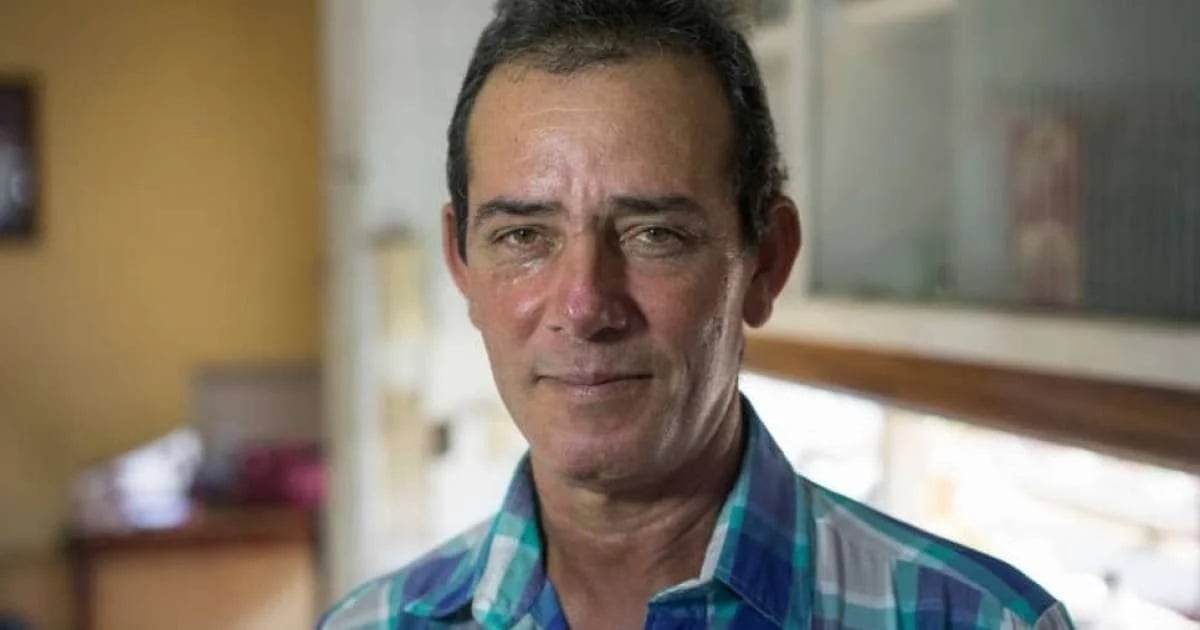The future of independent Cuban journalist and former political prisoner Lázaro Yuri Valle Roca hangs in the balance as he faces the looming threat of deportation from the United States. This comes in light of newly tightened immigration policies imposed by the Trump administration. Valle Roca, who endured nearly three years of imprisonment, left Cuba in June 2024 after his wife, Eralidis Frómeta, successfully arranged for a humanitarian parole through the U.S. embassy in Havana.
However, Valle Roca might be ensnared by the recent revocation of parole programs for citizens of Cuba, Haiti, Nicaragua, and Venezuela, along with their immediate families, as declared by the U.S. Department of Homeland Security (DHS) on March 25. In a heartfelt post on Facebook, Valle Roca conveyed his distress over the possibility of deportation while reaffirming his opposition to the Cuban regime. "Dear brothers, friends, and followers, life can be so cruel sometimes. They want to send us back to death, but I have faith in God, our Father, and in all our brothers and friends. If I am returned to my beloved homeland, I will enter shouting #DownWithTheCubanDictatorship," the journalist declared.
The termination of the humanitarian parole programs follows Executive Order 14165 by President Donald Trump, issued on January 20, 2025, which aims to secure the border and end these programs. The DHS notification emphasizes that this move could impact thousands of exiles, including journalists and activists fleeing authoritarian regimes, much like Valle Roca.
This past Friday, it was revealed that the DHS has started sending out notifications to humanitarian parole recipients, instructing them to leave the country before their status expires. Recent reports state that the official notice warns that those who fail to voluntarily depart may face expedited deportation proceedings. This has caused widespread concern among the Cuban exile community, who fear a wave of expulsions without assurances of protection for political refugees.
"Your parole will terminate on the earlier of the following dates: (1) the expiration date of your original parole or (2) April 24, 2025. You must leave the United States now, but no later than the end date of your parole. Failing to leave in a timely manner could have adverse immigration consequences," the order reads.
The document warns that, following the parole expiration date, an individual may be subject to expedited removal under section 235 of the Immigration and Nationality Act (INA) or regular removal proceedings under section 240 of the INA. "Either of which may result in your removal unless you have departed the United States or obtained a legal basis to remain within the United States," it explains.
It further stresses that if migrants have not secured a legal basis to stay and do not exit the U.S. before their parole ends, they will begin accumulating "unlawful presence in the United States," unless they are otherwise protected from such accumulation. The termination notice also includes a revocation of employment authorization based on parole. This benefit, tied to the parole status, has likewise been rescinded, as outlined in the document sent to migrants.
For many facing deportation, including Valle Roca, returning to Cuba would pose a direct threat to their freedom and safety due to their history of opposition to the regime.
Impact of U.S. Policy Changes on Cuban Exiles
What are the consequences of the parole program termination for Cuban exiles?
The termination of the parole programs may lead to deportation for many Cuban exiles, putting them at risk of returning to a regime they oppose, potentially endangering their freedom and safety.
How does this policy change affect humanitarian parole recipients?
Humanitarian parole recipients are required to leave the U.S. by the expiration of their parole status, failing which they may face expedited deportation. This change eliminates their ability to legally reside and work in the U.S.
Why was the parole program for Cubans and other nationalities revoked?
The parole program was revoked as part of a broader initiative under Executive Order 14165 to secure U.S. borders and terminate certain immigration programs deemed inconsistent with this objective.
